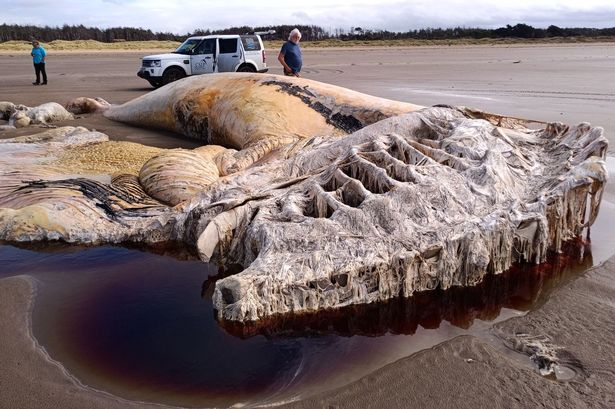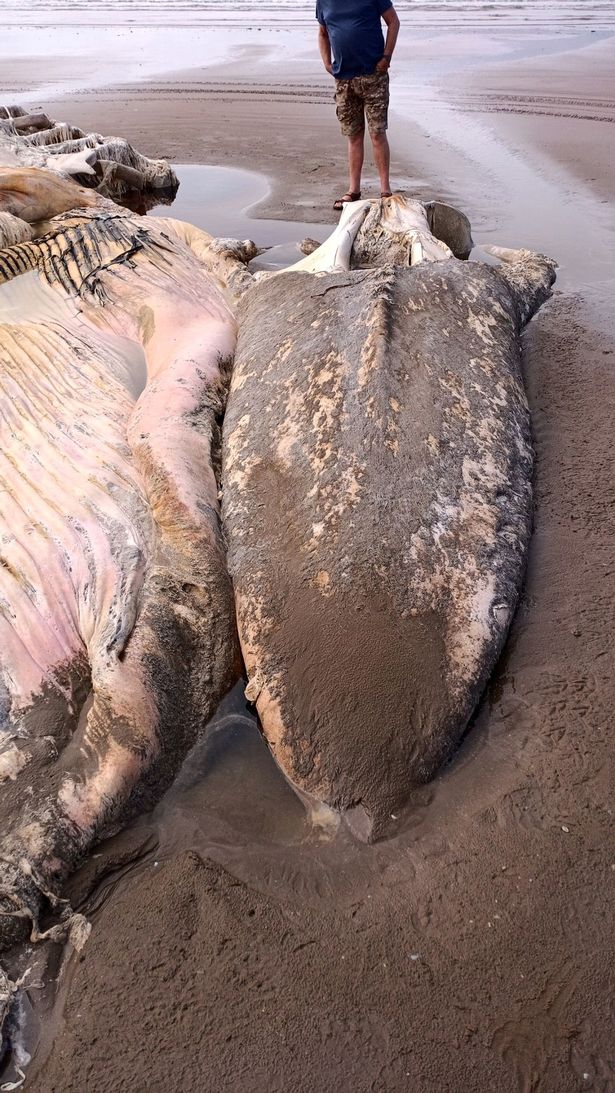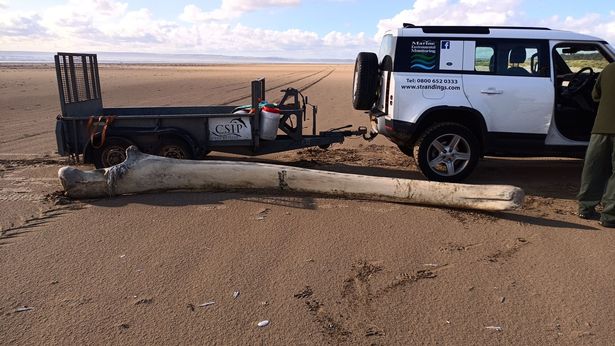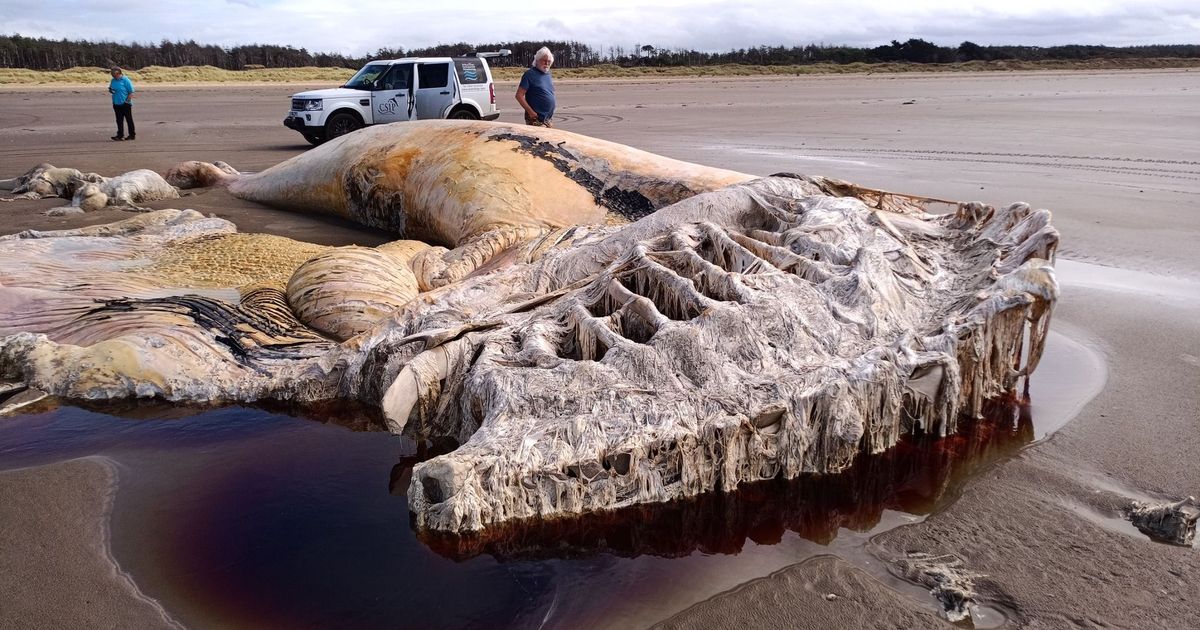The remains of a giant sea creature was discovered on the Welsh coast and now the identity has been confirmed
12:37, 05 Sep 2025Updated 13:40, 05 Sep 2025
 What was left of the whale’s enormous head(Image: Marine Environmental Monitoring)
What was left of the whale’s enormous head(Image: Marine Environmental Monitoring)
The remains of a giant sea creature found on the Welsh coast was a “very large” fin whale, researchers have confirmed. Second only in size to the blue whale, it was only the fourth confirmed report of a fin whale washing up in Wales this century. With a thin body and a distinctive dorsal fin, the whales are nicknamed “razorback”.
One visitor was left shocked on Wednesday morning, September 3, to see what she believed to be the corpse of a whale washed up on the sands of Cefn Sidan Beach in Pembrey, Carmarthenshire.
Initial assessments indicate a female and suggest its size was almost 70ft (21m). Staff from ocean watchdog Marine Environmental Monitoring (MEM) were astounded by its size when they visited the beach the day after its discovery on Wednesday morning (September 3).
Its head alone was over 16ft (5m) in length and around 8ft (2.5m) wide. In an update, MEM said: “Unfortunately, it had been dead for some time and as a result was in a bad state of decomposition. Read the biggest stories in Wales first by signing up to our daily newsletter here
 Remains of a fin(Image: Marine Environmental Monitoring)
Remains of a fin(Image: Marine Environmental Monitoring)
“We believe that this one is a female but due to the state of decomposition we couldn’t confirm this. We have taken several samples from the whale which will be tested for various things including contaminates and to carry out genetics.”
Previously, whales stranded on the Welsh coast have often been found to be malnourished or affected by pollution such as plastic waste.
Fin whales are a protected species and are the world’s second biggest mammals after blue whales. The WWF conservation group says the fin whale is found in most oceans, but the species has been severely impacted by commercial whaling.
“Nearly 750,000 animals were killed in areas of the Southern Hemisphere alone between 1904 and 1979, and they are rarely seen there today,” WWF said on its website.
“Their current status is unknown in most areas outside of the North Atlantic.”
 One of the whale’s jaw bones(Image: Marine Environmental Monitoring)
One of the whale’s jaw bones(Image: Marine Environmental Monitoring)
Though Marine experts say fin whales are increasingly returning to Welsh waters. Research by the Sea Trust indicate pods are now swimming off the Pembrokeshire coast each year.
Wednesday’s discovery was the second of the week involving a whale. On Monday, September 1, a long-finned pilot whale was found on Rhossili Bay beach on the Gower peninsula.
It was still alive. Members of public tried to get the whale back to the sea but it was too heavy and they were unable to move it. Coastguards and volunteers from British Divers Marine Life Rescue (BDMLR) were alerted but the animal died before they got there.
The carcase was recovered for the Cetacean Strandings Investigation Programme (CSIP), and a full post-mortem will be carried out.
MEM is urging people to report stranded marine animals to CSIP on 0800 652 0333. Select option 1 if the animal is still alive (this directs you to BDMLR). Otherwise select option 2 and follow the instructions.
